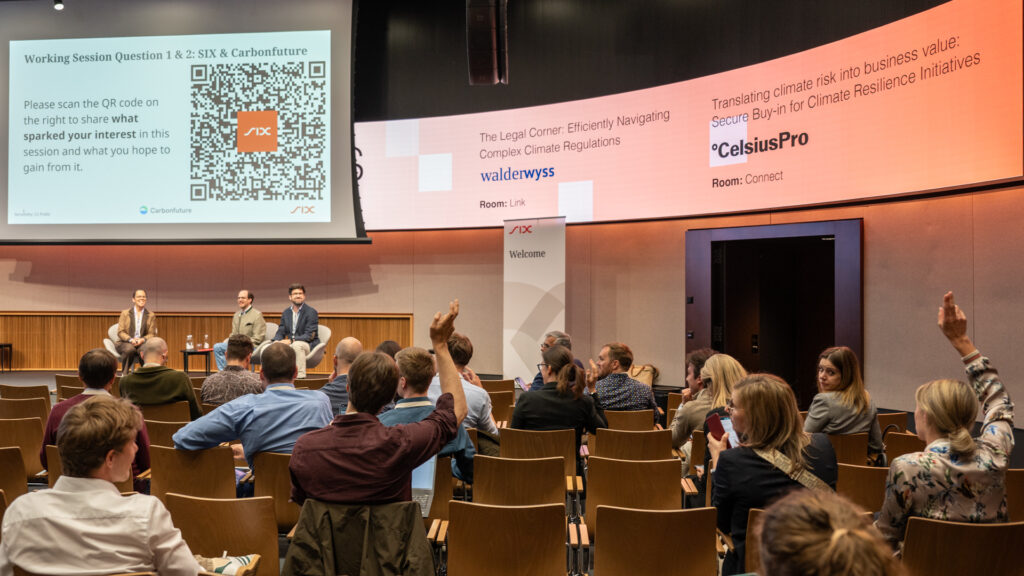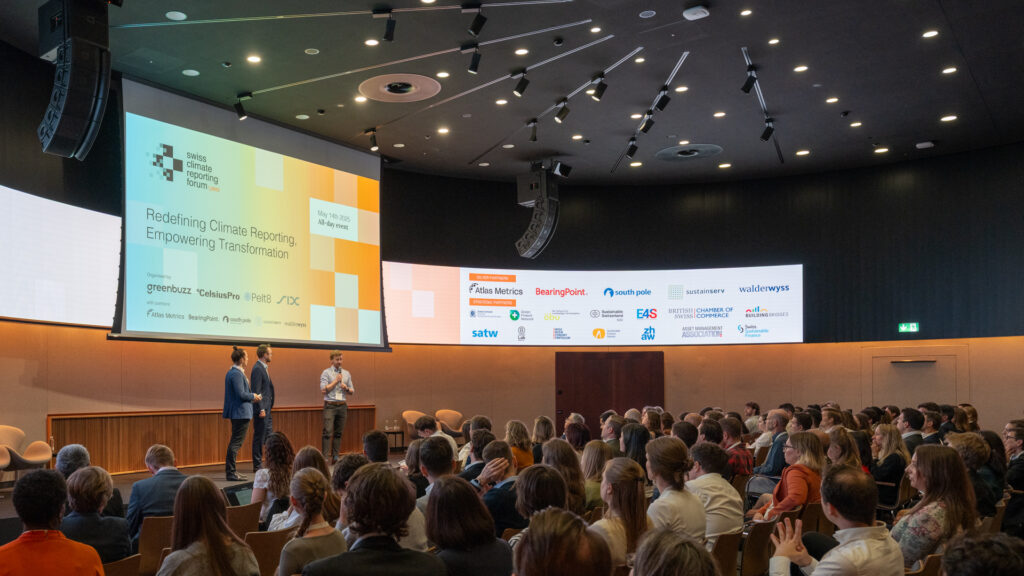Who we are
The foundation of the SCRF is a four-field Climate Reporting Canvas, to guide companies in drafting a sustainability and climate strategy. It starts with a broader vision, outlines challenges for achieving the vision, and suggests not only actions to address the challenges but also opportunities that arise in the process.

Mission & Vision
Vision
A company needs a vision beyond writing a Climate Report – a “why” it wants to become more sustainable and climate-resilient. A well-articulated and thoroughly integrated vision helps a company’s leadership to anchor and communicate its longterm strategy, can raise employee engagement and signals to stakeholders the sincerity of any commitment.
Actions
Companies must define steps to achieve the vision and address the challenges. If no direct compliance pressure exists, a simple rule-of-thumb prioritises low-hanging fruit by considering activities with the most significant leverage or impact, propelling the company towards its vision.
Challenges
A company will encounter challenges and obstacles while moving towards its vision. Some of the challenges are more pronounced depending on the stage of the company; other challenges are universal.
Opportunities
Benefits of more sustainable business practices should be concretely linked to the activities, not just costs. This way, actions are seen as an investment into the company’s longevity, addressing hesitations towards sustainability and Climate Reporting that many companies face for the first time.
A vision for climate reporting
Goal-oriented
Climate Reporting should be goal-oriented, provide a clear framework for organisations to measure their progress, drive meaningful action, and ensure accountability in addressing climate-related risks and opportunities.
Transparent
Climate Reporting needs to be comprehensive and transparent and disclose all the company’s climate-related risks, starting with the material ones.
Accurate
Data on which Climate Reporting relies must be valid, detailed, robust and traceable, allowing for independent verification.
Comparable
Climate Reporting needs to follow standards that allow effortless comparison between reports to foster a global understanding of climate risks.
Accountable
Companies and their leadership should be accountable for the climate targets they set and communicate. Climate Reporting should demonstrate net-positive impacts and be common grounds to derive actions and be decision-useful.
Challenges
A company will encounter challenges and obstacles while moving towards its vision. Some of the challenges are more pronounced depending on the stage of the company; other challenges are universal.
White Paper: Climate Reporting Blueprint
News
- Turning Insight into Action: Focus Session Highlights from SCRF 2025Expert-led focus sessions explored how to turn climate reporting into meaningful organisational change. From regulation and data to risk and carbon removals, a clear message emerged: reporting is just the start—real impact depends on legal, technical, and cultural readiness.
- From Reporting to Action: Takeaways from the Swiss Climate Reporting Forum 2025The Forum made one thing clear: climate reporting is no longer just a regulatory requirement—it’s a strategic lever for value creation, innovation, and leadership. As the world moves from disclosure to delivery, Swiss companies and institutions must embrace reporting not just as a compliance task, but as a catalyst for action.
- Purpose Over Mandate: How Education is Shaping the Future of Climate LeadershipEducational institutions may not be bound by mandatory reporting, but they are showing what authentic climate leadership looks like. By embedding sustainability into learning, reporting voluntarily, and involving students as change agents, they are creating a model the private sector can learn from.





